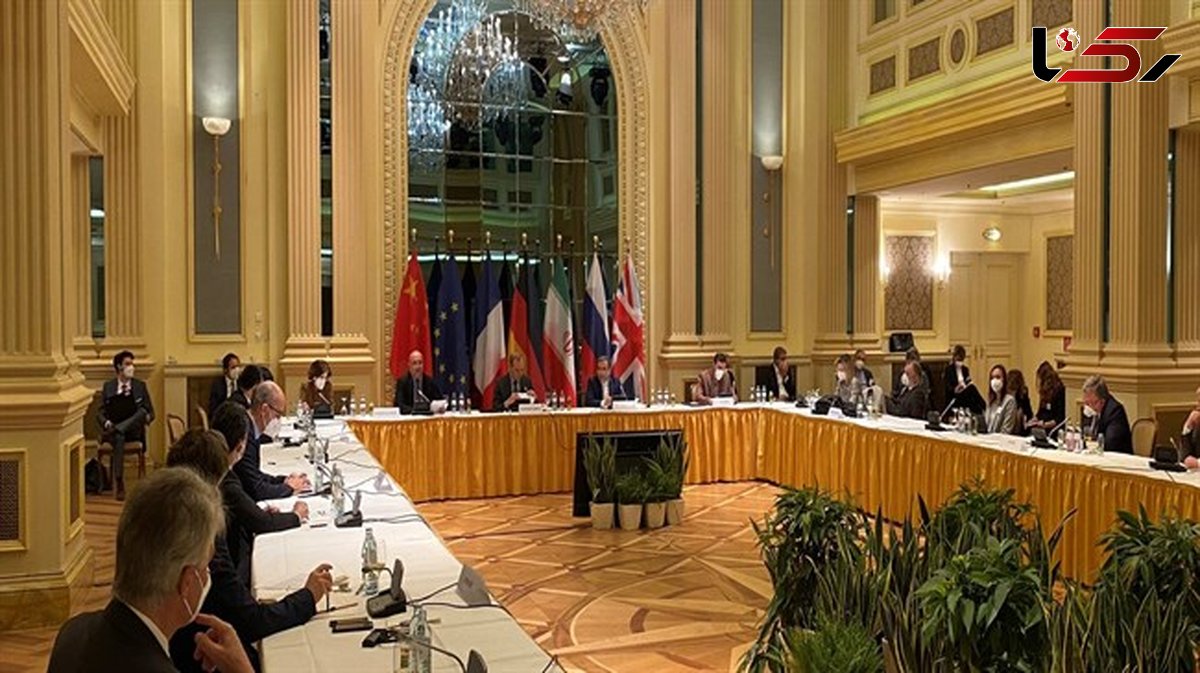Iran talks 'on right track' as diplomats reconvene in Vienna
Rokna:The fourth round of talks between Iran and world powers on the 2015 nuclear deal opened in Vienna on Friday, with diplomats voicing hope an agreement can be reached before the Islamic Republic's June presidential election.

The remaining parties to the nuclear deal – Britain, China, France, Germany and Russia as well as Iran – held talks for about an hour at a hotel in the Austrian capital.
Russian Ambassador to the UN in Vienna Mikhail Ulyanov tweeted after Friday's session that "the participants agreed on the need to intensify the process".
"The delegations seem to be ready to stay in Vienna as long as necessary to achieve the goal," he said.
Iran's delegate to the talks, Deputy Foreign Minister Seyyed Abbas Araqchi, told IRNA late Thursday that his team was trying to reach an agreement as soon as possible but would not act in haste and would act in Iran's national interests.
“We are on a specified path about which there are, fortunately, agreements, but there are serious obstacles in the way as well," Araqchi said.
Heading into the talks, Ulyanov tweeted that he saw positive signs from Araqchi’s remarks, AP wrote.
“The head of the Iranian delegation is cautious in his assessment of the current state of affairs at the Vienna talks (very similar to assessments of the US colleagues),” he tweeted. “But both Iran and US refrain from pessimistic conclusions. This seems to be not a bad sign.”
One diplomatic source told AFP before Friday's talks that while "nothing was guaranteed" at the negotiations, they are "on the right track".
The source expressed hope that the latest talks could be the "final round".
Between the high-level meetings, expert groups have been meeting to try and come up with solutions to the outstanding issues.
The aim is a return to full compliance with the 2015 accord, known as the JCPOA, which has been slowly disintegrating since former US president Donald Trump withdrew from it in 2018 and Iran responded a year later by dropping some of its obligations.
Trump's successor Joe Biden has said he wishes to rejoin the JCPOA, and an American official said on Thursday an agreement was "possible" in the coming weeks, before Iran's June 18 election.
The three initial rounds of talks were described as "serious" and "productive" by the senior State Department official, who asked not to be named.
The US is not taking part in the meetings directly and European diplomats are acting as intermediaries.
Besides the Iran election, another source of time pressure is the looming expiration of a three-month agreement between Iran and the UN nuclear watchdog, the International Atomic Energy Agency (IAEA).
The agreement announced in February allows the IAEA to maintain a level of oversight of Iran's nuclear facilities despite Tehran's suspension of some inspections by the body.
Under the agreement, Iran pledged to keep recordings "of some activities and monitoring equipment" and hand them over to the IAEA as and when US sanctions are lifted.
IAEA Director General Rafael Grossi on Thursday met Araqchi.
In an interview last week with Bloomberg TV, Grossi said that Iran would destroy the camera data if an agreement was not reached in time, adding: "Let's hope it hasn't happened."
He said that if the temporary agreement expired and the broader diplomatic talks remained stuck, he would return to Tehran to try to broker another compromise.Follow the Official Rokna NEWS Telegram Channel For More and fresh NEWS.

Send Comments